
Jesus Came Triumphant to Die
Why did Jesus come into the city of Jerusalem before the Passover Feast? What message was Jesus sending to his disciples, what message was Jesus sending to the crowds, and what message was Jesus sending to the religious leaders? What did Jesus accomplish at the triumphal entry at his final Passover feast?
Jesus came into the city humbly but triumphantly. Jesus came into the city to send a clear message about who he is. Jesus was coming into the city with humility, riding a donkey. Jesus was coming into the city as Solomon came into the city, riding on a humble colt, an animal of peace (1 Kings 1:32–35, ESV).
By coming into the city in this way, Jesus was sending a message of peace. By coming into the city riding on a donkey, Jesus was identifying himself as the King of Israel. Jesus was identifying himself as the Son of David. Jesus was identifying himself as and as the Messiah, as prophesied by the Prophet Zechariah (Zechariah 9:9-10, ESV).
At the triumphal entry of Jesus into the temple complex, “They brought a colt to Jesus, and throwing their cloaks on the colt, they set Jesus on it. And as he rode along, they spread their cloaks on the road. As he was drawing near—already on the way down the Mount of Olives—the whole multitude of his disciples began to rejoice and praise God with a loud voice for all the mighty works that they had seen, saying, ‘Blessed is the King who comes in the name of the Lord! Peace in heaven and glory in the highest!’” (Luke 19:35-38, ESV).

The Prodigals
What is a prodigal? How are we prodigals? What is God’s posture towards prodigals?
A prodigal is a wasteful and wayward person, who has left God their father for sinful, extravagant, selfish, and self-serving living.
God loves the prodigal despite of their sinful, wasteful, and wayward ways.
In Luke 15, we see the parables of the lost things, the lost sheep, the lost coin, and the lost sons, expressing God’s desire to seek and to save the lost (Luke 19:10).
The loving father in the parable of the prodigals says to the older brother, “Son, you are always with me, and all that is mine is yours. It was fitting to celebrate and be glad, for this your brother was dead, and is alive; he was lost, and is found.” (Luke 15:31-32, ESV).
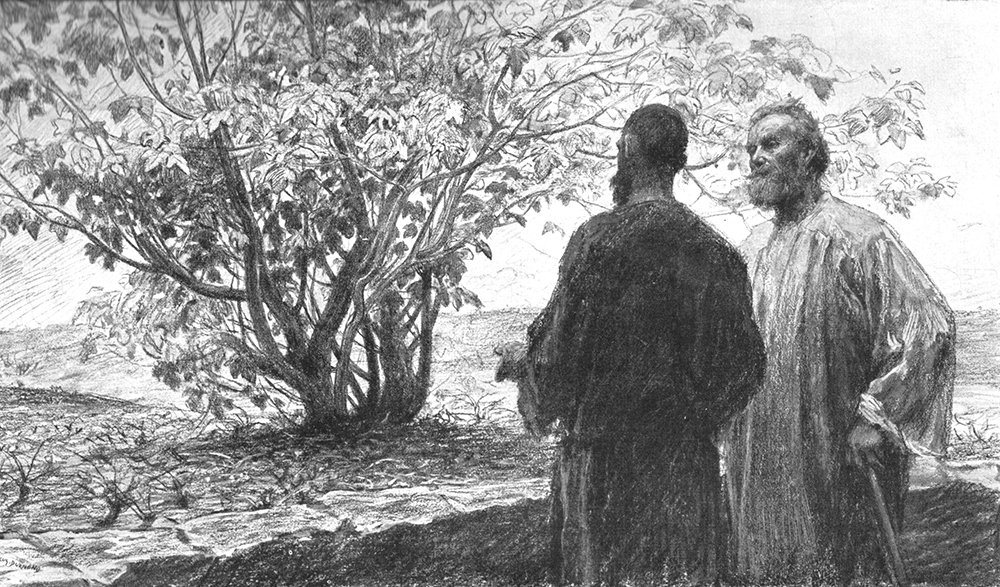
From Barrenness to Fruitfulness
How fruitful is your life? Are there areas of your life that are barren? Are there places where you need to cultivate the ground to bear fruit in your spiritual life?
God desires for each of his followers to produce fruit and to live fruitful lives.
Without cultivating and fertilizing the metaphorical ground around the tree that is our spiritual lives, we can become barren and we will not bear fruit.
In Luke’s gospel account, Jesus told a parable of the bare fig tree, saying, “A man had a fig tree planted in his vineyard, and he came seeking fruit on it and found none. And he said to the vinedresser, ‘Look, for three years now I have come seeking fruit on this fig tree, and I find none. Cut it down. Why should it use up the ground?’ And he answered him, ‘Sir, let it alone this year also, until I dig around it and put on manure. Then if it should bear fruit next year, well and good; but if not, you can cut it down.’” (Luke 13:6-9, ESV).
Without cultivating fertile ground, we will not produce the fruitfulness God desires in our lives.

The Narrow Way
How narrow is the way to everlasting life and to the kingdom of God? Do you know the way to God’s life for you and do you know the way to God’s kingdom? Are you prepared to enter the narrow way?
The doorway to the kingdom of God and his life for us is available, but it is specific and it is narrow and it is time sensitive.
God seeks to know us and for each of us to respond to him in relationship. By God’s grace, we are called to the difficult task of entering the narrow way in God’s timeframe.
Luke’s Gospel account tells us, “Jesus went on his way through towns and villages, teaching and journeying toward Jerusalem. And someone said to him, ‘Lord, will those who are saved be few?’ And [Jesus] said to them, ‘Strive to enter through the narrow door. For many, I tell you, will seek to enter and will not be able. When once the master of the house has risen and shut the door, and you begin to stand outside and to knock at the door, saying, ‘Lord, open to us,’ then he will answer you, ‘I do not know where you come from.’ Then you will begin to say, ‘We ate and drank in your presence, and you taught in our streets.’ But he will say, ‘I tell you, I do not know where you come from. Depart from me, all you workers of evil!’” (Luke 13:22-27, ESV).
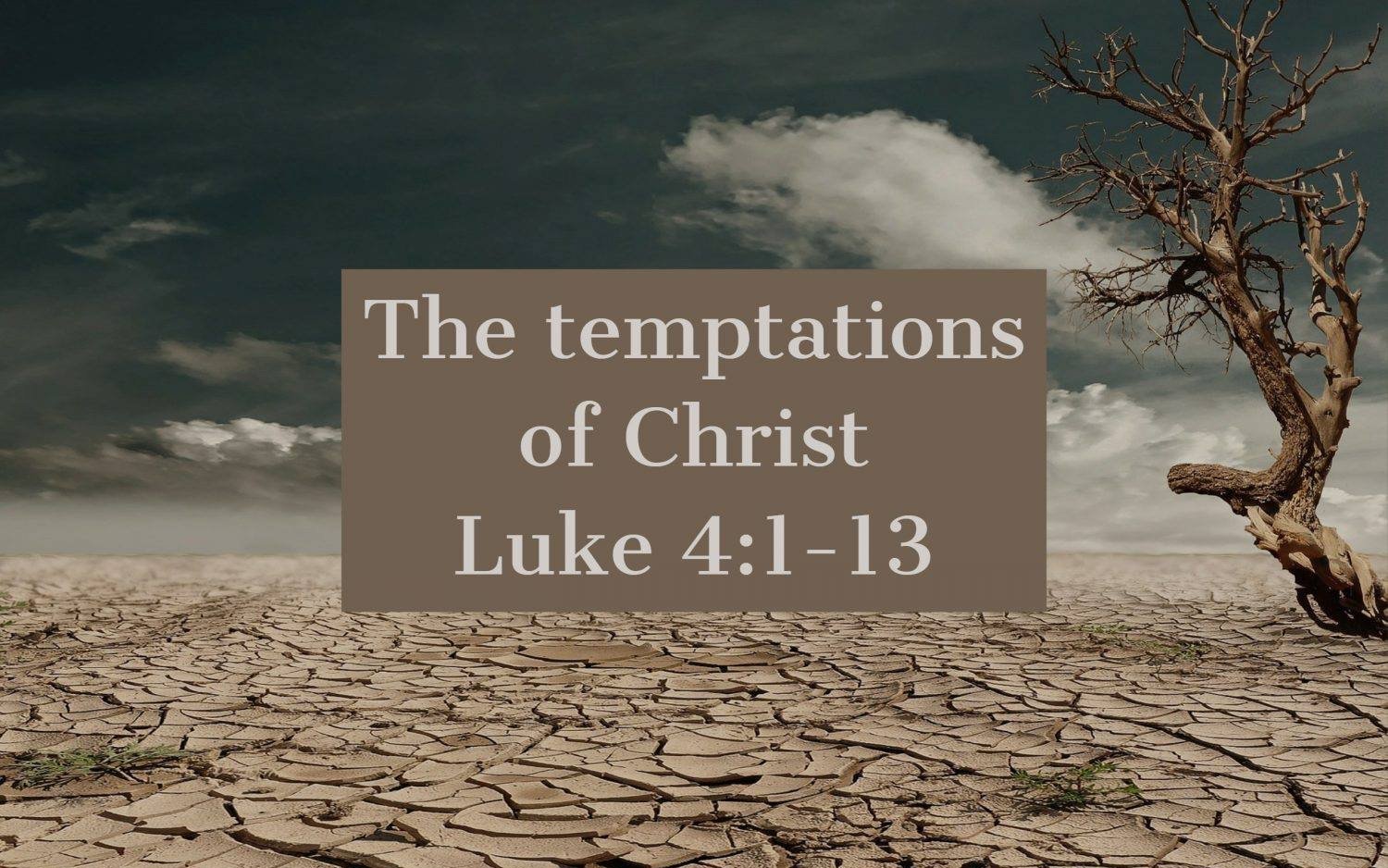
Our Temptations
What are the temptations we face in our lives? Is God able to relate to our temptations? Are we able to resist the evil and the temptations we face on a daily basis?
Our world and our lives are filled with temptations of all kinds. No matter what temptations we experience, God is acquainted with every temptation and every evil we face in this world. Because Jesus has faced evil and temptation face-to-face, and has resisted, we can resist the devil and the temptations we encounter in the world and in our lives.
The Gospel of Luke tells us, “And Jesus, full of the Holy Spirit, returned from the Jordan and was led by the Spirit in the wilderness for forty days, being tempted by the devil. And he ate nothing during those days. And when they were ended, he was hungry.” (Luke 4:1-2, ESV).
Jesus encountered the devil and his temptations and he prevailed by the power of the Holy Spirit who led him there in the wilderness.
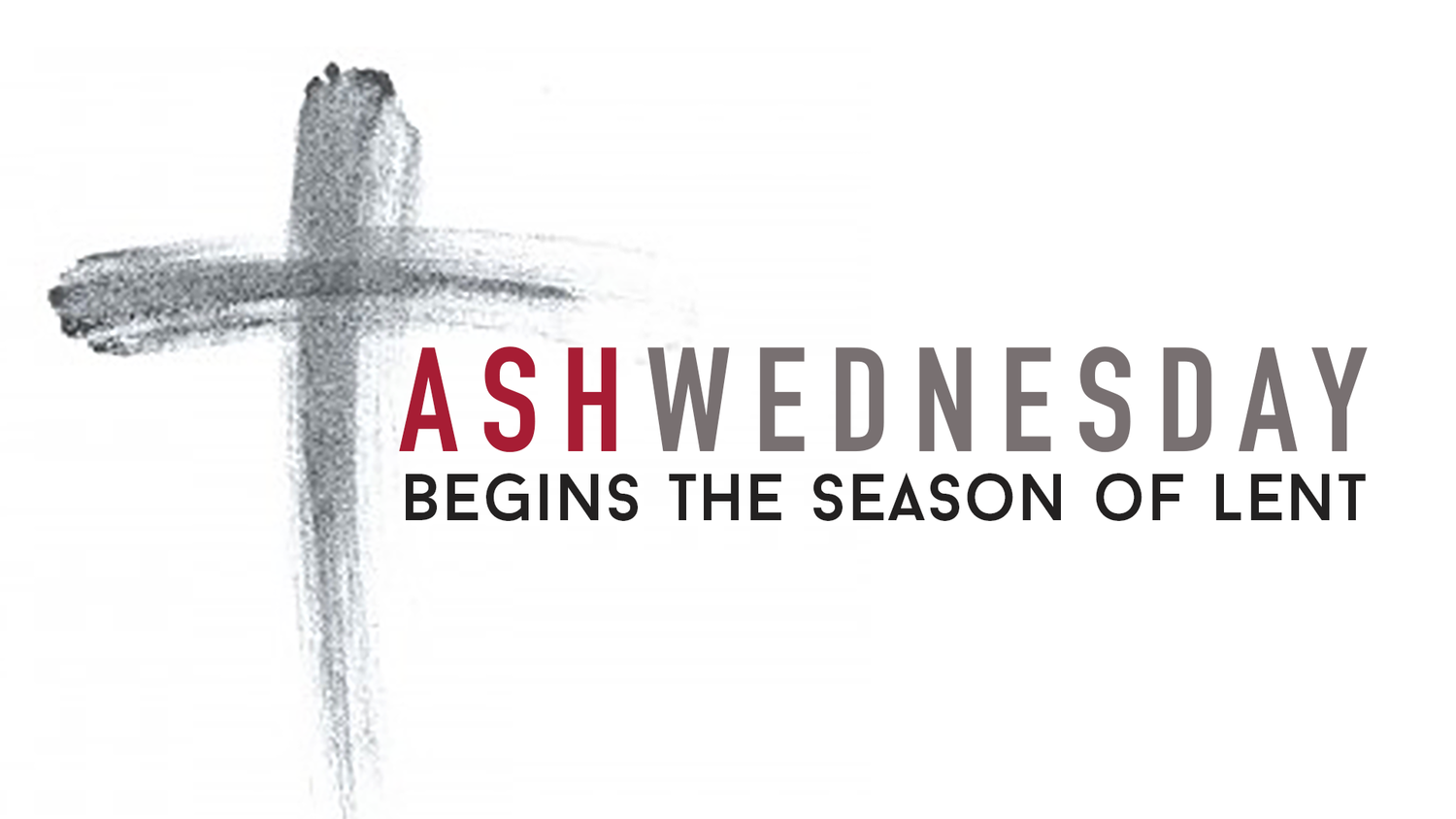
True Fasting Favorable To God
What fasting is favorable to God? Is there a fasting that God is looking for, and a fasting that is less favorable to God? What does a true fast look like?
Our fasting should be in service to God. A fast that is self-serving and self-gratifying is not a fast at all.
God desires a fast that is beneficial to his kingdom work in the world.
When we fast in light of God’s kingdom work, we align our heart with the heart of God. When God’s kingdom benefits from our fast, we benefit from the kingdom of God in the world and in our lives.
God spoke through the Prophet Isaiah, saying, “Is such the fast that I choose, a day for a person to humble himself? Is it to bow down his head like a reed, and to spread sackcloth and ashes under him? Will you call this a fast, and a day acceptable to the Lord? ‘Is not this the fast that I choose: to loose the bonds of wickedness, to undo the straps of the yoke, to let the oppressed go free, and to break every yoke? Is it not to share your bread with the hungry and bring the homeless poor into your house; when you see the naked, to cover him, and not to hide yourself from your own flesh? Then shall your light break forth like the dawn, and your healing shall spring up speedily; your righteousness shall go before you; the glory of the Lord shall be your rear guard. Then you shall call, and the Lord will answer; you shall cry, and he will say, ‘Here I am.’” (Isaiah 58:5-9b, ESV).
Fasting begins with humility. We humble ourselves before God in offering ourselves and our service to God and God’s kingdom work.
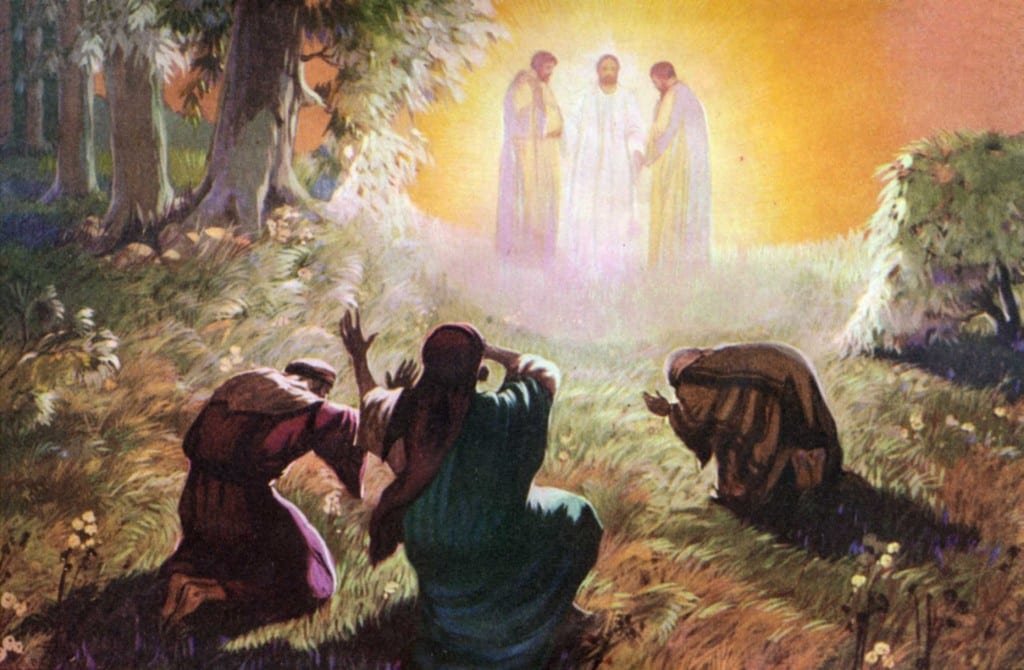
Encountering God’s Transformation
In what ways do we need God’s transformation in our lives? How are we transformed? What does transformation look like in the life of the follower of Jesus?
The transfiguration of Jesus can teach us a lot about transformation. As Jesus came into the presence of God the Father, he radiated with the glory of God. Jesus was transfigured. Jesus was transformed.
Luke’s Gospel account tells us, “Jesus took with him Peter and John and James and went up on the mountain to pray. And as he was praying, the appearance of his face was altered, and his clothing became dazzling white.” (Luke 9:28-29, ESV).
When Jesus turned his face towards God in prayer, his face and his appearance was transformed by God’s glory.
When we come into the presence of God we are changed. When we encounter God, we are transformed. When we come into God’s presence and see the face of Jesus, we are transformed. When we come into God’s presence and see the face of Jesus, the people we come in contact with come into God’s presence and can see the glory of Jesus in our face, like the disciples at the transfiguration.

Missions: Sent By God
Who does God expect is going to fulfill his mission in the world? What type of people does God use and send out for his purposes and mission?
God expects every believer to go and do his mission in the world. If we are a follower of Jesus, we are sent ones. We are called to God’s mission and God is sending us in the world for his purposes and plan.
In John’s Gospel account, after the resurrection of Jesus, “On the evening of that day, the first day of the week, the doors being locked where the disciples were for fear of the Jews, Jesus came and stood among them and said to them, ‘Peace be with you.’ When he had said this, he showed them his hands and his side. Then the disciples were glad when they saw the Lord. Jesus said to them again, ‘Peace be with you. As the Father has sent me, even so I am sending you.’ And when he had said this, he breathed on them and said to them, ‘Receive the Holy Spirit. If you forgive the sins of any, they are forgiven them; if you withhold forgiveness from any, it is withheld.’” (John 20:19-23, ESV).
Jesus revealed himself to his disciples after the resurrection and Jesus sent them out into the world, just as the Father had sent him into the world.
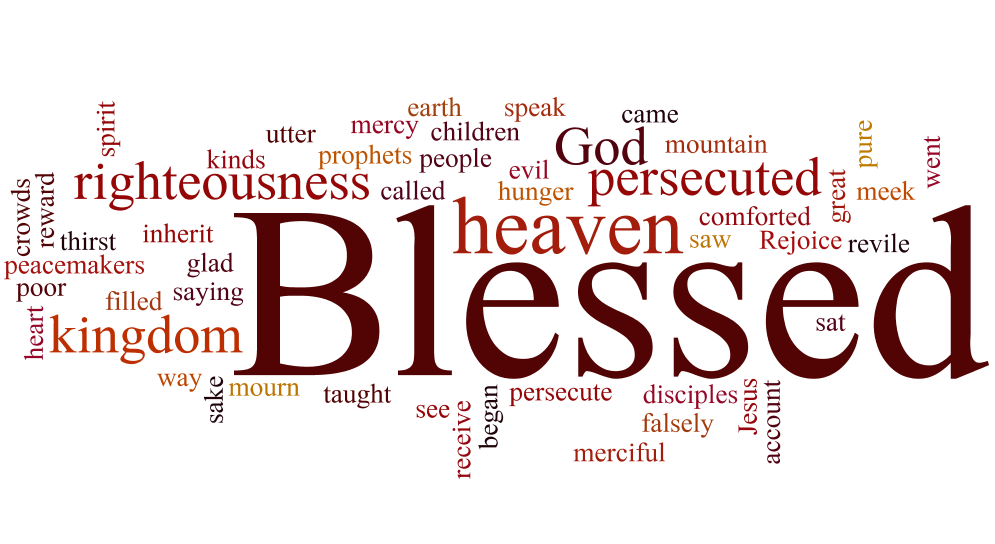
Blessed
Are you blessed? What makes you blessed? Are you blessed in ways which are unexpected?
We are blessed beyond measure. We are blessed in ways that we are not even aware that we are blessed. We are blessed in situations and through circumstances that are unexpected, unorthodox, unusual, and unimaginable.
In the Sermon on the Plain, in the Beatitudes, in Luke’s gospel account, Jesus “lifted up his eyes on his disciples, and said: ‘Blessed are you who are poor, for yours is the kingdom of God. ‘Blessed are you who are hungry now, for you shall be satisfied. ‘Blessed are you who weep now, for you shall laugh. ‘Blessed are you when people hate you and when they exclude you and revile you and spurn your name as evil, on account of the Son of Man! Rejoice in that day, and leap for joy, for behold, your reward is great in heaven; for so their fathers did to the prophets.” (Luke 6:20-22, ESV).
We often do not consider the things that are seen as troublesome, or a burden to us, could be a blessing in our lives from God’s perspective and in God’s kingdom economy.

The Calling of the Disciple
What does the calling of a follower of Jesus look like? What does following Jesus require of us? Can it be frightening to follow Jesus?
Following Jesus where he is leading us means we cannot stay where we are. If we are going to follow Jesus, we must leave what we have always done, and where we currently are, to do what Jesus calls us to do, and to go where he calls us to go. It can be frightening to follow Jesus’ call.
The Gospel of Luke tells us that after Jesus’ miracle of the great catch of fish, “Jesus said to Simon, ‘Do not be afraid; from now on you will be catching men.’ And when they had brought their boats to land, they left everything and followed him.” (Luke 5:10-11, ESV).
Jesus’ early disciples left their fishing trade to follow Jesus’ calling, even though it was unknown and frightening.

The Best is Yet to Come
Do you believe the best is yet to come? Or do you believe the best you will ever experience is the best you have had or will have in this life?
For the follower of Jesus, the best is yet to come.
The Apostle Paul wrote the Christians in Rome, saying, “For I consider that the sufferings of this present time are not worth comparing with the glory that is to be revealed to us” (Romans 8:18, ESV).
Even the best we experience in this life is colored by the suffering and sin in this world. God’s future for the follower of Jesus is a life filled with glory and without future suffering.

Work
What is the work you are called to do? Do you do your work with all your might? Do you do your work as an act of worship? Is your heart in your work?
Our work matters to God. We are called to work with all our might. Our work is worship. How we engage our heart matters to God.
With our work comes great reward.
The Apostle Paul wrote the Colossian church, encouraging them by saying, “Whatever you do, work heartily, as for the Lord and not for men, knowing that from the Lord you will receive the inheritance as your reward. You are serving the Lord Christ.” (Colossians 3:23-24, ESV).

The Presentation of Jesus
What is worth waiting your entire life for? What have you been waiting your entire life to see or to receive? What would make you think you could die in peace because it could not get any better?
When Jesus was presented in the Temple in Jerusalem, two righteous and devout people were waiting on him in eager anticipation, Simeon and Anna. They were waiting on the fulfillment of God’s promises and they were committing their lives to see the fulfillment of God’s word.
The Gospel of Luke tells us “Now there was a man in Jerusalem, whose name was Simeon, and this man was righteous and devout, waiting for the consolation of Israel, and the Holy Spirit was upon him. And it had been revealed to him by the Holy Spirit that he would not see death before he had seen the Lord's Christ. And he came in the Spirit into the temple, and when the parents brought in the child Jesus, to do for him according to the custom of the Law, he took him up in his arms and blessed God” (Luke 2:25-28, ESV).

Wisdom and Word
Where do you go to receive wisdom and a word from God?
There is so much information coming at us from every direction. We are bombarded by different mediums of communication, facilitating sending us messages from a variety of value systems and conflicting worldviews.
A medium is something in a middle position. Most likely you have heard the expression, “Let’s look for a happy medium.”
A medium is also a means of communicating or conveying information, an idea, or a message. The plural of medium is media.
Media is a channel or system of communicating information, or a form of entertainment, a published work, a radio, television, livestream, or social media which broadcasts and carries advertising. Media can also be a mode of artistic expression or communication.

The Mission of Jesus
Do you have a mission statement for your life? Do you have guiding core values and a purpose statement for your life? What was the mission of Jesus? Did Jesus have core values and a core mission for his life and ministry?
The Gospel of Luke tells us, “Jesus returned in the power of the Spirit to Galilee, and a report about him went out through all the surrounding country. And he taught in their synagogues, being glorified by all.” (Luke 4:14-15, ESV).
God gives his power for purpose in our lives. Jesus lived empowered by the Holy Spirit. Jesus lived on purpose and for purpose. Jesus lived on mission.
Because Jesus lived empowered, and on purpose and for purpose, we are to live empowered by the Holy Spirit, on purpose and for purpose. Because Jesus lived on mission, we are to live on mission.

Miracles Follow Obedience
When do we need a miracle the most? How do miracles come about? Do we play a role in God’s provision and plan to be implemented in our lives?
A need fulfilled begins with the need. Miracles follow problems.
If we are going to experience the miracles God wants for us, we must listen to Jesus and obey him.
The gospel of John tells us that Mary, the mother of Jesus, told the servants to listen to Jesus and to do whatever he told them to do when they had run out of wine in Cana of Galilee. John tells us, “His mother said to the servants, ‘Do whatever he tells you.’” (John 2:5, ESV).

New Year Goals and The Holy Family
Happy new year!
I hope and pray you have had wonderful Christmas with your family and friends, and an exciting and reflective new year celebration.
The Feast of the Holy Family, is where Jesus was found after the Passover Feast by his parents who had lost track of him for three days (see Luke 2:41-52). There is so much going on in this text contextually.
For instance, the caravan the family was traveling in was most likely filled with family and travelers from the holy family's Nazareth community. This group would have been assisting each other with the care of the children, and it would have been easy to assume another family member, or community member, was lending a helping hand with the boy Jesus.
Another factor at play here is Jesus' age, he was twelve according to the text, most likely nearing his time of becoming a man at thirteen. Because of his age, Jesus could have been traveling with the women up ahead, or with the men who were traveling in the back of the group to keep watch, to protect, and to go at the pace of the women and children up ahead. This would have made it harder to keep up with where Jesus was during the journey.
My favorite element of context in this account is where they find Jesus, in the Temple, most likely in Solomon's Portico according to some scholars. The text tells us, "After three days they found him in the temple, sitting among the teachers, listening to them and asking them questions. And all who heard him were amazed at his understanding and his answers" (Luke 2:46-47, ESV).
You can hear echoes of Jesus' later words as an adult when he proclaimed, "I say this because she traveled from far, far away to listen to Solomon’s wise teaching. And I tell you that someone greater than Solomon is right here, but you won’t listen!" (Matthew 12:40, ERV).

Born of Water and Spirit
Have you been baptized by water and the Holy Spirit? Do you need to be baptized? What does our baptism accomplish?
Baptism is essential for the follower of Jesus. Even Jesus himself was baptized in obedience to his Father by John the Baptizer.
Each of us are called to be born of water and the Spirit of God through baptism, identifying with Jesus’ own death, burial, and resurrection.
When we are baptized, the water symbolizes the washing away of our sin, the death to our old nature, and our new birth and salvation through the rejuvenating waters of baptism and the Spirit of God.
Luke tells us in his gospel account that “John answered them all, saying, ‘I baptize you with water, but he who is mightier than I is coming, the strap of whose sandals I am not worthy to untie. He will baptize you with the Holy Spirit and fire.’” (Luke 3:16, ESV).

God’s Light for All People
Who has God revealed himself to? How has God revealed himself? What should be our response to God’s revelation?
God has shined his light into the darkness of this world and has revealed himself to all people through his son Jesus.
The Gospel of Matthew tells us, “Now after Jesus was born in Bethlehem of Judea in the days of Herod the king, behold, wise men from the east came to Jerusalem, saying, ‘Where is he who has been born king of the Jews? For we saw his star when it rose and have come to worship him.’” (Matthew 2:1-2, ESV).
God revealed himself to wise men in the east through the appearance of a star. God called these people to worship him by revealing himself to them through the light of his revelation in this stellar appearance.

The Word Became Flesh
Have you heard the expression, “Can you flesh that out for me?” What does it mean to “flesh something out”? What does it mean when the Apostle John says, “And the Word became flesh and dwelt among us”? (John 1:14, ESV).
An AI definition of “flesh that out” says, “The phrase ‘flesh that out’ means to provide more details or information about something, or to make something more complete. For example, you might flesh out an argument, essay, or plan.”
God literally “fleshed out” a comprehensive argument for who he is and his plan for salvation for all people in his son Jesus in the incarnation. God’s expression of his love for us is made complete in his son Jesus being born into this world to save us.
The Apostle John tells us, “He came to his own, and his own people did not receive him. But to all who did receive him, who believed in his name, he gave the right to become children of God, who were born, not of blood nor of the will of the flesh nor of the will of man, but of God.” (John 1:11-13, ESV).